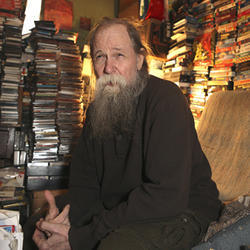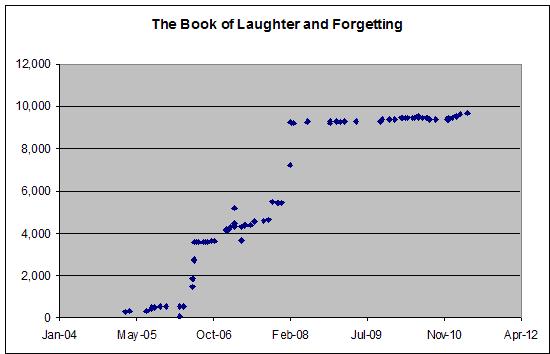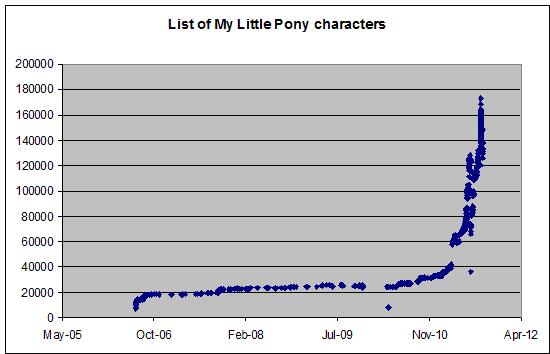The 'The Neutral Point of View' rule is the second best known rule on Wikipedia. (The first is ‘verifiability, not truth', which I will talk about later). I have been doing some research on how this rule became a part of Wikipedia. An early version was completed by Larry Sanger for Nupedia in November 2000, as part of his editorial policy guidelines. Section D of part III on General Nupedia Policies (‘Lack of Bias’) contains the core idea of the neutrality principle.
Sanger’s test for lack of bias is whether it is difficult or impossible for the reader to determine what view the author holds. This in turn means that “for each controversial view discussed, the author of an article (at a bare minimum)
mention various opposing views that are taken seriously by any
significant minority of experts (or concerned parties) on the subject”. He adds that, in a final version of an article, “every party to the controversy in question must be able to judge that its views have been fairly presented, or as fairly as is possible in a context in which other, opposing views must also be presented as
fairly as possible” (my emphasis).
In a second attempt at such a guideline, the ‘Neutral point of view’ policy drafted in
December 2001, he writes “The neutral point of view attempts to present ideas and facts in such a fashion that both supporters and opponents can
agree.” And “you should write articles without bias, representing all views
fairly”. And “to write without bias (from a neutral point of view) is to write so that articles do not advocate any specific points of view; instead, the different viewpoints in a controversy are all described
fairly.” (my emphasis, again).
The principle, as stated, is fundamentally flawed. If one view that p is contrary to another q (meaning that p and q cannot
both be true), then it is very easy to determine which view the author holds, on the assumption that he or she is rational, and wants to avoid inconsistency (i.e. avoid asserting two things that cannot both be true). And of course it would be absurd to suppose that an encyclopedia, a source of knowledge, true propositions, should be asserting inconsistent statements. Thus, the view that the author holds to be true is the one that the article states as true, and all other contrary views must be represented as false, or as mere beliefs. Sanger's criterion that it should be difficult or impossible for the reader to determine what view the author holds is impossible to apply.
His use of the term ‘mention’, and ‘fairly’ suggests a way out. We can state what the view is, i.e. truly say what its adherents hold, without saying anything true or false ourselves. For example, the statement ‘Flat earthers hold that the earth is flat’ is true (that’s what they say, after all), even though ‘the earth is flat’ is false, as far as we know.
But that is no good either, at least not in an encyclopedia. For example, the article on the
World Geodetic System opens
The World Geodetic System is a standard for use in cartography, geodesy, and navigation. It comprises a standard coordinate frame for the Earth, a standard spheroidal reference surface (the datum or reference ellipsoid) for raw altitude data, and a gravitational equipotential surface (the geoid) that defines the nominal sea level.
It does not assert that this is what round-earthers
say or
believe, nor does it mention the views of Flat Earthers
at all. Wikipedia, and other encyclopedias, represents mainstream scientific opinion as true, and only represents other significant views by way of true statements about what its adherents believe.
There is exactly the same difficulty with Sanger’s December 2001 version.
If we're going to represent the sum total of "human knowledge"--of what we believe we know, essentially--then we must concede that we will be describing views repugnant to us without asserting that they are false. [my emphasis]
Another way round the difficulty is the idea of including only ‘significant’ views on a subject. Thus, in the Nupedia 2000 policy, Sanger refers to views hold by a ‘significant minority of experts’. In the later Wikipedia 2001 policy he refers to “all different (significant, published) theories on all different topics”. This is better, but still weak, for two reasons. First, the ‘published’ criterion includes
all sorts of nonsense. Second, whether a view is significant or not is a value judgment, and thus difficult to verify.
In summary, none of these ways of ensuring neutrality – or rather, getting a bunch of internet amateurs to agree on matters on which there is considerable disagreement, such as Neurolinguistic programming, Pedophilia, The Palestine question or even the name of the British Isles* - were likely to work, and the only solution in past disputes has been simply to ban the disputing parties. It is impossible to assert any proposition without asserting that it is true. Simply mentioning it as a belief of certain people is inappropriate in a reference work. And deferring to mainstream scientific opinion makes it simply a copy of mainstream scientific opinion (which is what an encyclopedia should be anyway).
The 'verifiablity' principle came a bit later. More tomorrow, or next week.
* A notable and long-running dispute in Wikipedia. The talk page of the British Isles article runs to a whopping
39 archives. Among the protagonists was user ‘Sarah777’, accustomed to saying
things like “I'm staggered (not) at how ill-informed some British Nationalist editors are in relation to the history and symbolism of the Union Jack. It is akin to Germans still using the Swastika to represent Germany”. was
banned in May 2012 for “total failure to adhere to the most basic principles of editing in a collaborative environment”.
 As it's been a bit of a New Age week here at Beyond Necessity, and because it's Friday, when we venture into the world of strange and bad music, here is some music people were simply too wasted to get anything right*. We'll start with the 13th Floor Elevators, 60s psychedelic band and stoner heroes.
As it's been a bit of a New Age week here at Beyond Necessity, and because it's Friday, when we venture into the world of strange and bad music, here is some music people were simply too wasted to get anything right*. We'll start with the 13th Floor Elevators, 60s psychedelic band and stoner heroes. Following the unexpected success of
Following the unexpected success of  I have a broad musical taste and there is no music that I entirely dislike. Often I have wondered whether there is any really bad, irredeemably bad music. Particularly when I found myself watching
I have a broad musical taste and there is no music that I entirely dislike. Often I have wondered whether there is any really bad, irredeemably bad music. Particularly when I found myself watching 
